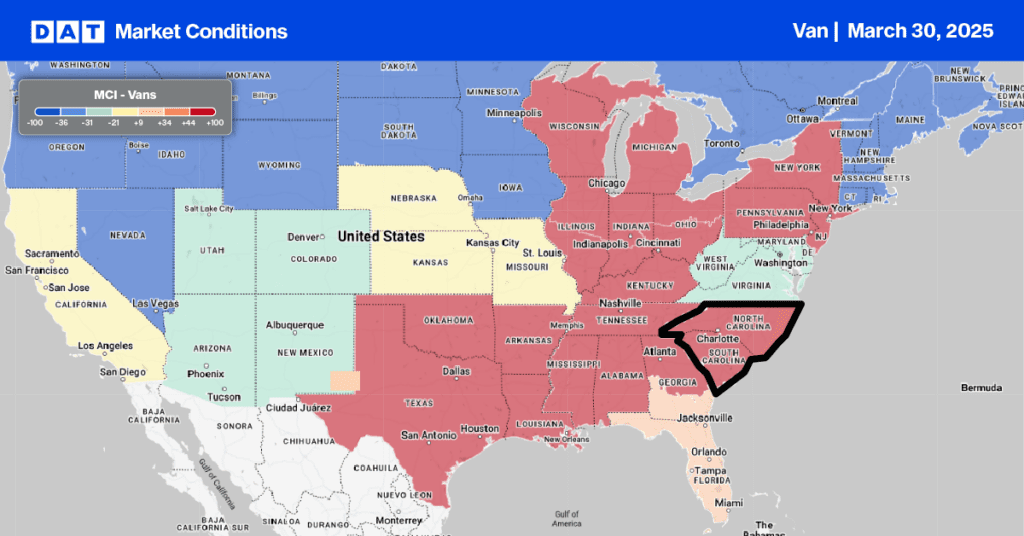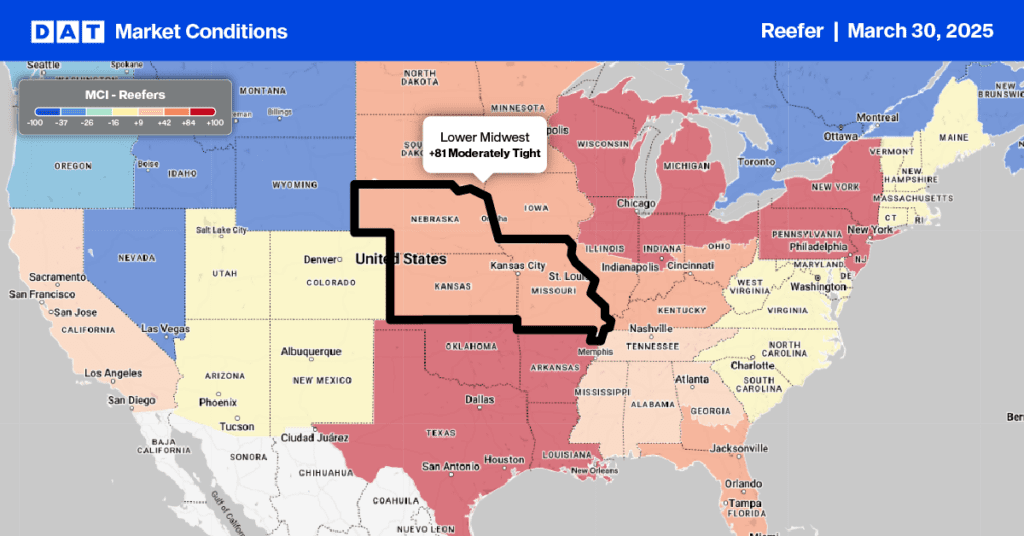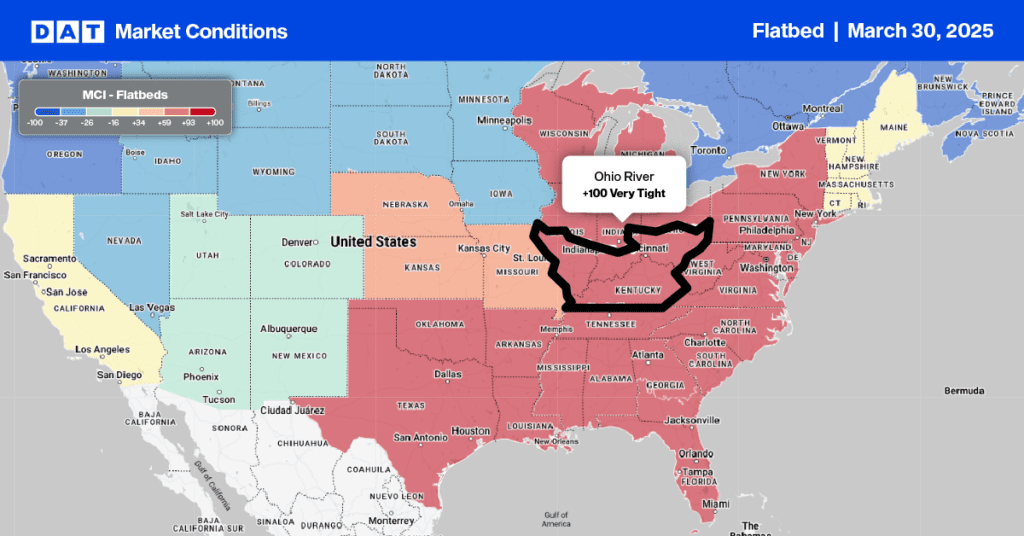One of the most common questions we get asked on “DAT iQ Live,” our weekly market update show, is whether or not it’s a good time to enter the box truck market. The pandemic has changed many things in trucking, as has what’s known as the “Amazon Effect”, where new distribution centers and warehouses are popping up at an alarming rate. They’re also much closer to urban populations to facilitate next or same-day deliveries and demand for smaller and more agile delivery vehicles.
To help answer this question we invited Nicole Glenn, Founder, and CEO of Candor Expedite, onto our show for an in-depth look at this sector of the trucking market.
Get the clearest, most accurate view of the truckload marketplace with data from DAT iQ.
Tune into DAT iQ Live, live on YouTube or LinkedIn, 10am ET every Tuesday.
Ken Adamo: So is it a good time to enter the box truck freight market?
Nicole Glenn: Yes, I would definitely say yes. This is a market that is needing capacity in certain markets in certain marketplaces. We are seeing more and more requests for straight trucks. So one of the great things about what’s going on right now with the good of the industry is that customers and clients are starting to open up more they’re starting to listen to different solutions, but we’re still seeing so in some places, $7.00 to $8.00/mile in the spot market. So clients are looking at alternative options that they can do getting crafty and creative with the street truck and the Sprinter van model. So I would definitely say yes to that question. There is such a need for additional capacity in those equipment-type spaces.
Ken Adamo: If you’re a shipper and you’re struggling with your core carrier list, where are opportunities for carriers to talk to shippers about some of these alternative methods to handle freight?
Nicole Glenn: Well, it’s really having that consultative approach, so understanding how a shipper goes to market in the tractor-trailer marketplace and asking the following questions. When do they need to get the product delivered? Are they willing to ship short? Can they actually hold some of their LTL freight a little bit longer and create that straight truck or Sprinter van move? So I’d like to host a call with the shipper and go through some of those checkpoint questions to understand what is really needed right down to understanding inventory requirements and production cycles.
Ken Adamo: Are you seeing a lot of spillover from LTL where those networks are slammed for shipments especially in the 8,000 to 10,000 pounds range.
Nicole Glenn: We are seeing spillover quite often and then we’re also seeing recoveries, so freight might move on the line-haul and then get stuck in a location. They may not have a driver to do that local route or even that regional route in a timely manner. We also saw that some of the larger LTL lines have pushed away some of their smaller midsize shipper clients.
Ken Adamo: In response to changes in the federal excise tax, have you seen box or straight truck carriers remove their tag axle to reduce their weight.
Nicole Glenn: We don’t really get a lot of 10,000-pound shipments but we are seeing a lot of 6,600 to 8,800 shipments. We do have carriers that are willing to haul 9,800 pounds but we’re mostly moving lighter commodities such as medical supplies.
Ken Adamo: One of the questions we often get asked is should I put a lift gate on a truck?
Nicole Glenn: Well, I think it’s really what you want to do with your customer base. So there are some carriers that don’t really have the drivers that would like to do the inside delivery and deal with all of that retail store deliveries. If you’re just handling B2B or dock to dock moves a liftgate isn’t necessary. But if you want to step into retail space or maybe more of a high niche type of volume where you’re delivering medical equipment you’re going to need extra insurance due to higher claims.
Ken Adamo: What are you seeing as a typical team premium at the moment for a straight truck?
Nicole Glenn: We see quite a bit of team requests and when we do we have a process at our company where we first confirm it’s a genuine team and not just a solo driver. We do what’s called a “phone handoff” from one driver to the other as you’d be surprised how many times it’s really just a solo driver. ,
You can listen to the full recording and more in-depth insights from Nicole Glenn here.


